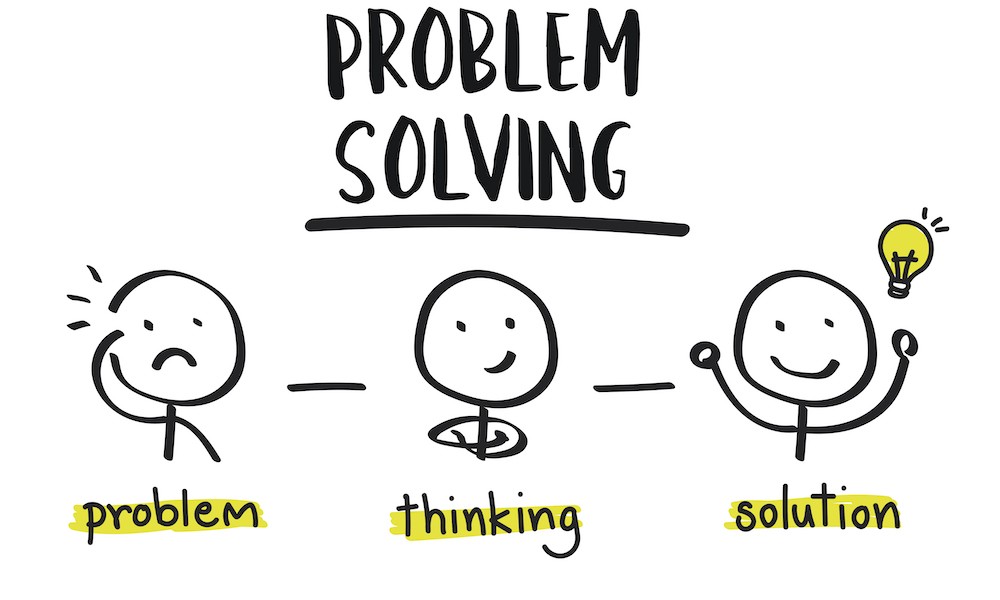Resilience: How to Bounce Back Stronger in Life?

Have you ever wondered why some people seem to face life's challenges without flinching, while others falter at the slightest adversity? You might have heard the saying, "life has its ups and downs," but how do you maintain balance through them? The answer lies in one key word: resilience. In this article, we'll get to know resilience up close, understand why it's so important, and most importantly, how we can strengthen it in our daily lives. Our goal is to help you use practical strategies to turn challenges into opportunities for growth and improve your quality of life.
Table of Contents
- What is Resilience? Understanding the Concept and Its Importance
- Key Pillars of Resilience: Foundations for a Flexible Life
- Practical Strategies to Strengthen Resilience in Daily Life
- Resilience in Action: Stories of Overcoming Hardship
- Conclusion: Resilience, the Key to a Fulfilling Life
What is Resilience? Understanding the Concept and Its Importance
First, let's understand exactly what resilience means and how it differs from similar concepts.
Defining Resilience
Resilience, simply put, is the ability to adapt positively to difficult and stressful situations. Imagine a tree bending in a strong storm but not breaking, then straightening up again after the storm passes. This tree has shown resilience. The same applies to humans; resilience helps us to pick ourselves up after difficult experiences, such as job loss, illness, or relationship problems, learn from those experiences, and move forward.
Difference between Resilience, Resistance, and Stability:
You might confuse resilience with concepts like resistance or stability, but there are subtle differences:
- Resistance: Means remaining unchanged and unaffected by pressure. Someone who resists tries not to let external events influence them.
- Stability: Means maintaining the current state and not changing over time.
- Resilience: Is about flexibility and the ability to return to a normal state or even better after a shock or challenge. Resilience doesn't mean being unaffected, but rather the ability to move past impacts and recover afterward. A resilient person changes and adapts.
Why is Resilience Important?
In today's ever-changing world, resilience is no longer just a good trait; it's a necessity.
- The Role of Resilience in Mental Health: Individuals with high resilience are less likely to suffer from anxiety, depression, and psychological disorders. They can manage stress better and cope with setbacks. Resilience provides us with a protective shield against psychological pressures.
- The Impact of Resilience on Personal and Professional Success: On the path to achieving goals, whether in personal life or career, we inevitably face many obstacles. Resilience helps us not to give up after every failure, to learn from it, and to try again. This quality is key to enduring challenges and achieving greater success.
- The Importance of Resilience in Facing Crises and Changes: From financial crises to sudden life changes, all require resilience. A society whose individuals are resilient can emerge stronger from crises and adapt to major changes.

Key Pillars of Resilience: Foundations for a Flexible Life
Resilience isn't a single, monolithic trait; it's composed of several key elements. Understanding these pillars will help you identify what areas you need to work on more.
1. Self-Awareness and Acceptance
The first step to strengthening resilience is knowing yourself and accepting reality.
- Identifying Strengths and Weaknesses: When you know where you are strong and where you need improvement, you can better prepare for challenges. This self-knowledge gives you the confidence to use your strengths and plan for your weaknesses.
- Accepting Difficult Emotions and Experiences: Denying or suppressing negative emotions isn't the solution. Resilience means being able to experience sadness, anger, or disappointment, accepting that these feelings are part of life, and then moving past them. Acceptance helps you come to terms with reality.
2. Problem-Solving Skills
Resilient individuals are usually not passive when facing problems; they actively seek solutions.
- Critical Thinking and Finding Creative Solutions: When you encounter a problem, the ability to analyze the situation, explore different options, and find new solutions is crucial. This skill helps you move towards a solution instead of getting stuck in the problem.
- Effective Decision-Making in Tough Situations: In critical moments, the ability to make logical and effective decisions, even under pressure, is of high importance.
3. Optimism and Hope
Your outlook on the future greatly impacts your resilience.
- Positive Outlook on the Future: Optimism doesn't mean ignoring problems, but rather believing that you can overcome challenges and that a better future awaits you. This attitude is a driving force for continued effort.
- Ability to Find Meaning in Difficult Experiences: Even from the hardest experiences, one can learn lessons and find meaning. A resilient person can see an opportunity for growth and learning in the midst of hardship.
4. Effective Communication and Social Support
Human connections are a vital resource for resilience.
- The Role of Family, Friends, and Community in Strengthening Resilience: Having strong relationships with family, friends, and colleagues creates a strong support network for you. In tough times, these people can be a source of comfort, advice, and help.
- The Importance of Networking and Asking for Help: Don't be afraid to ask for help from others when needed. Connecting with others and building a support network gives you the assurance that you are not alone.

Practical Strategies to Strengthen Resilience in Daily Life
Now that we know what resilience is and what it consists of, let's move on to practical strategies. The good news is that resilience is not a fixed trait, and you can strengthen it.
Strengthening Mental Health
Mental health is the backbone of resilience.
- Mindfulness Exercises and Meditation: Mindfulness helps you live in the present moment and detach from negative thoughts and emotions. A few minutes of daily meditation can increase your calmness and enhance your ability to cope with stress.
- Stress and Anxiety Management: Identifying stressors and learning stress management techniques, such as deep breathing, yoga, or listening to calming music, can help you maintain peace of mind and increase your resilience.
- Developing Emotional Intelligence: The ability to understand and manage your own and others' emotions is crucial for resilience. The higher your emotional intelligence, the better you will perform in challenging situations.
Creating a Resilient Lifestyle
Your lifestyle directly impacts your ability to be resilient.
- Importance of Sufficient Sleep and Healthy Nutrition: Your body and mind need proper rest and nutrition to function correctly. Lack of sleep or poor nutrition can make you more vulnerable to stress.
- The Role of Exercise in Increasing Resilience: Regular physical activity is not only beneficial for physical health but also helps reduce stress, improve mood, and increase mental fortitude.
- Setting Realistic Goals and Planning: Having clear and achievable goals gives you a sense of purpose. Planning to reach these goals, even on a small scale, helps you feel more in control of your life.
Strengthening Social Relationships
Human relationships are a vital resource for resilience.
- Building Meaningful Connections: Spending time with those you love and who support you improves your quality of life and provides a strong foundation in difficult times.
- Participating in Group and Volunteer Activities: Joining groups or doing volunteer work gives you a sense of belonging and purpose. Helping others can reinforce your sense of worth.
- Helping Others and Developing Empathy: When you help others, you feel better about yourself, and this positive feeling adds to your resilience. Empathy with others also helps you gain a broader perspective on problems.
Changing Mindset and Beliefs
How you think about events plays a significant role in your resilience.
- Turning Challenges into Opportunities for Growth: Every problem can be an opportunity for learning and progress. Instead of seeing challenges as insurmountable obstacles, view them as steps to reach higher peaks.
- Positive Attitude towards Failures and Learning from Them: Failure is a natural part of the path to success. Learn from your failures, analyze your mistakes, and try again with new insights.
- Gratitude and Appreciation: Focusing on what you have and expressing gratitude for it can make your outlook on life more positive. This helps you see the bright spots even in difficult situations.
Resilience in Action: Stories of Overcoming Hardship
To make the concept of resilience more tangible for you, let's look at a few examples of people who have overcome great challenges with resilience.
Inspiring Examples:
- Stories of Individuals Who Overcame Financial Crises: Many people have faced bankruptcy or severe financial problems in their lives. Those who have managed to emerge from these situations with resilience usually set small, realistic goals for themselves, sought help from support resources (like family or counseling centers), and rebuilt their lives through hard work and perseverance.
- Experiences of Individuals Battling Serious Illnesses: Dealing with chronic illnesses or cancer is a major physical and psychological challenge. Resilient individuals in these situations focus on maintaining hope, communicating with doctors and family, and finding meaning in their daily lives. They accept that they cannot control everything, but they can control their reaction.
- Success of Individuals Who Returned After Career Setbacks: Losing a job is a bitter experience. But many resilient individuals have managed to turn this setback into an opportunity to learn new skills, change career paths, or even start their own businesses. They did not give up and actively sought new opportunities.
Key Lessons from These Stories:
There are common factors in the resilience of successful individuals:
- Acceptance of Reality: They don't deny that things are tough, but they don't drown in it either.
- Having Hope: Believing that conditions will improve and that they can overcome problems.
- Perseverance and Effort: They don't give up trying and actively seek solutions.
- Utilizing a Support Network: They use help from friends, family, and professionals.
- Learning from Experience: They see every challenge as an opportunity for growth and learning.
Conclusion: Resilience, the Key to a Fulfilling Life
In this article, we explored the concept of resilience, its importance in daily life, and practical strategies to strengthen it. We learned that resilience is not just about staying firm in the face of difficulties, but the ability to adapt, learn, and grow after facing challenges.
Resilience is a learnable and strengthenable skill. By practicing mindfulness, maintaining a healthy lifestyle, strengthening social relationships, and changing your mindset, you can become a more resilient person. Remember that every challenge is an opportunity to discover your hidden strengths.
So, start today. Take a small step; perhaps begin meditating, go for an hour-long walk, or even make a phone call to an old friend. Every step you take will lead you towards a more flexible and fulfilling life. The future belongs to those who learn to bend but not break.
Please Log in to leave a comment.